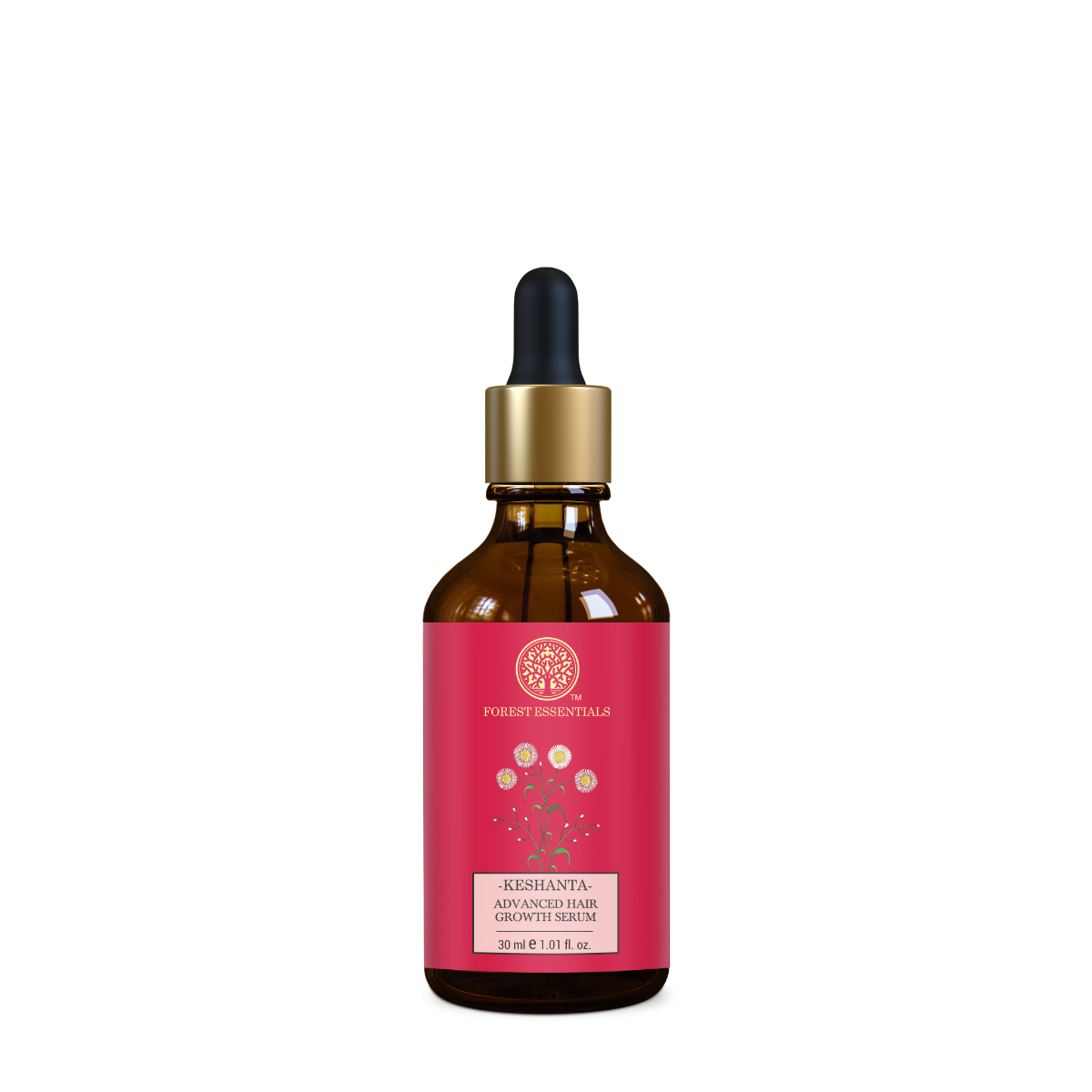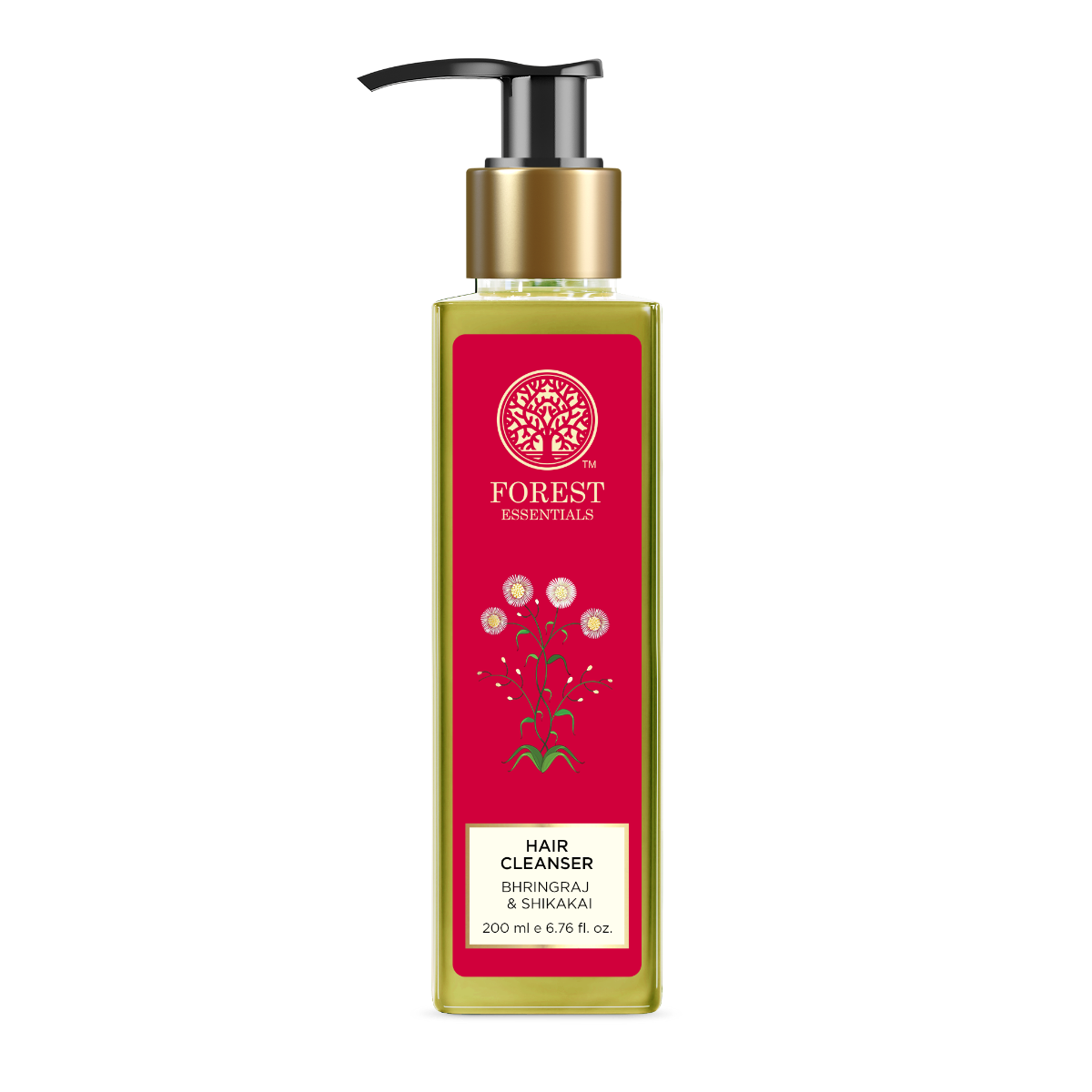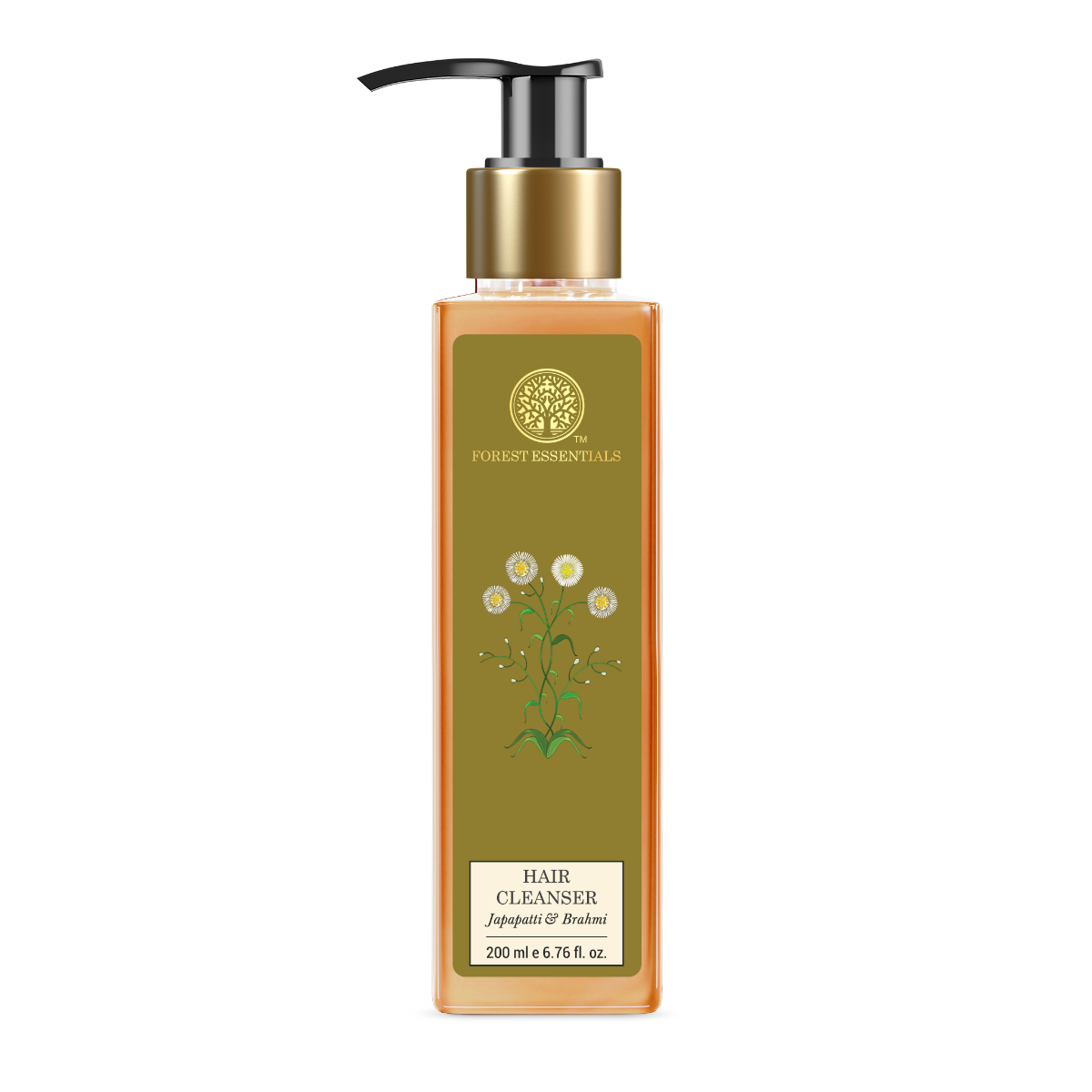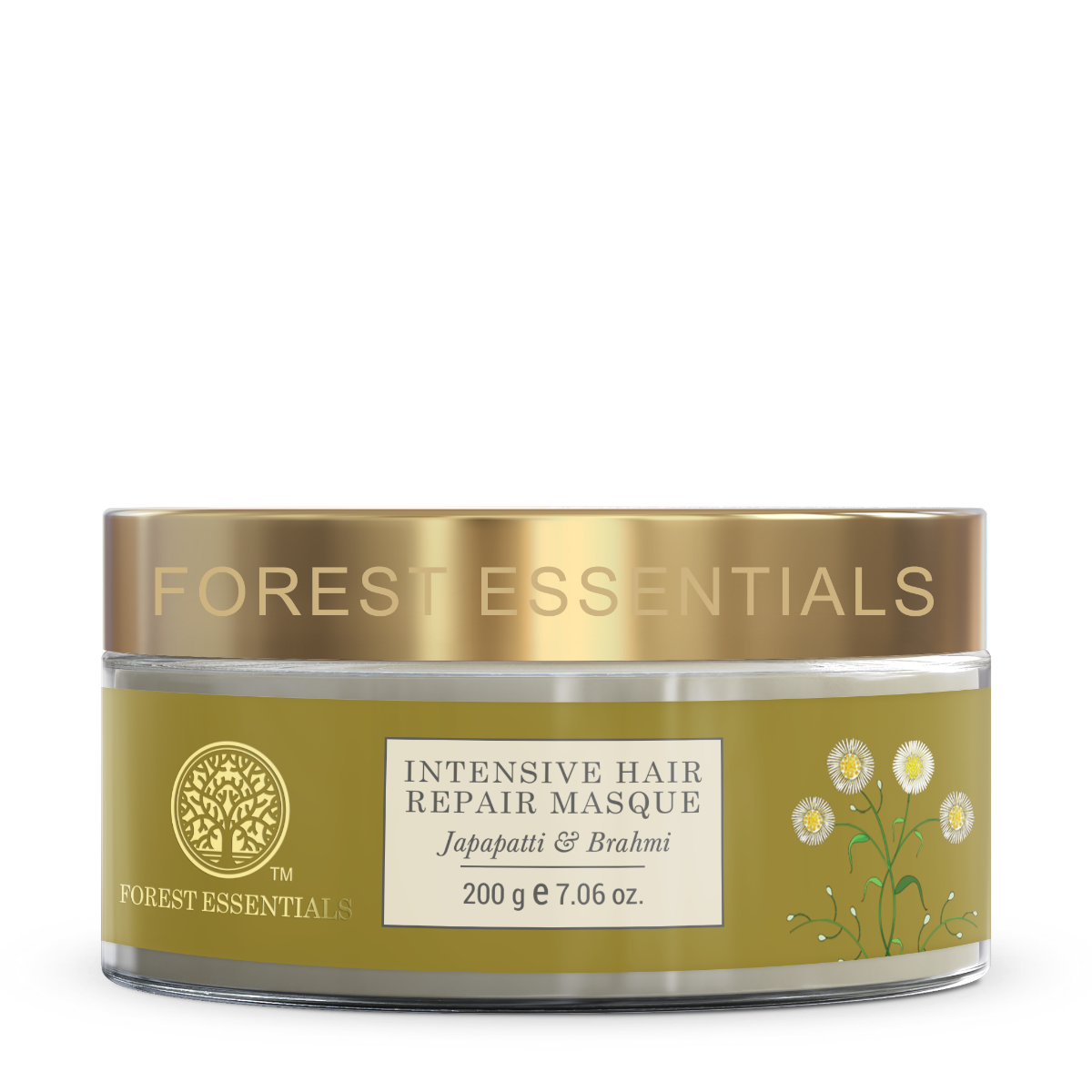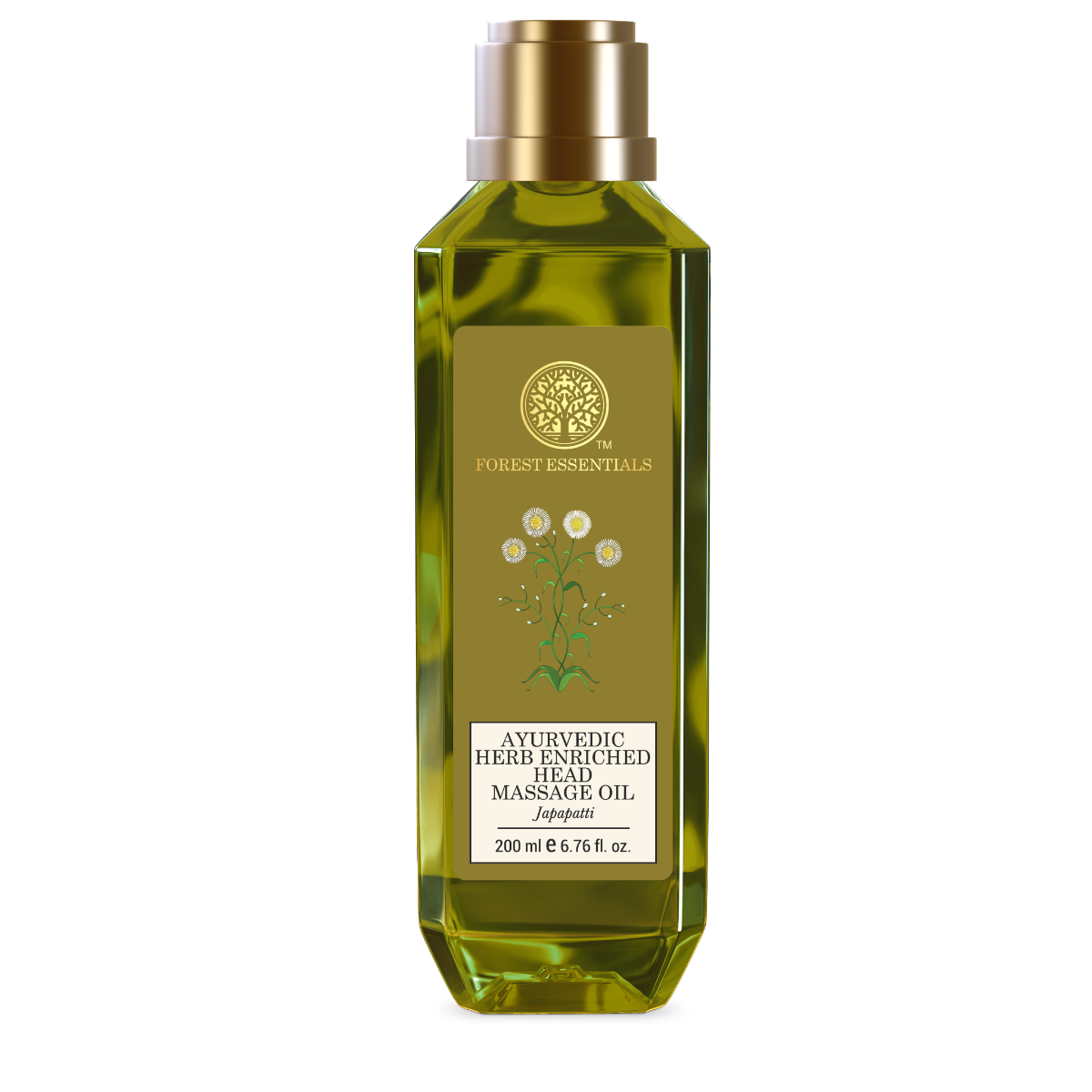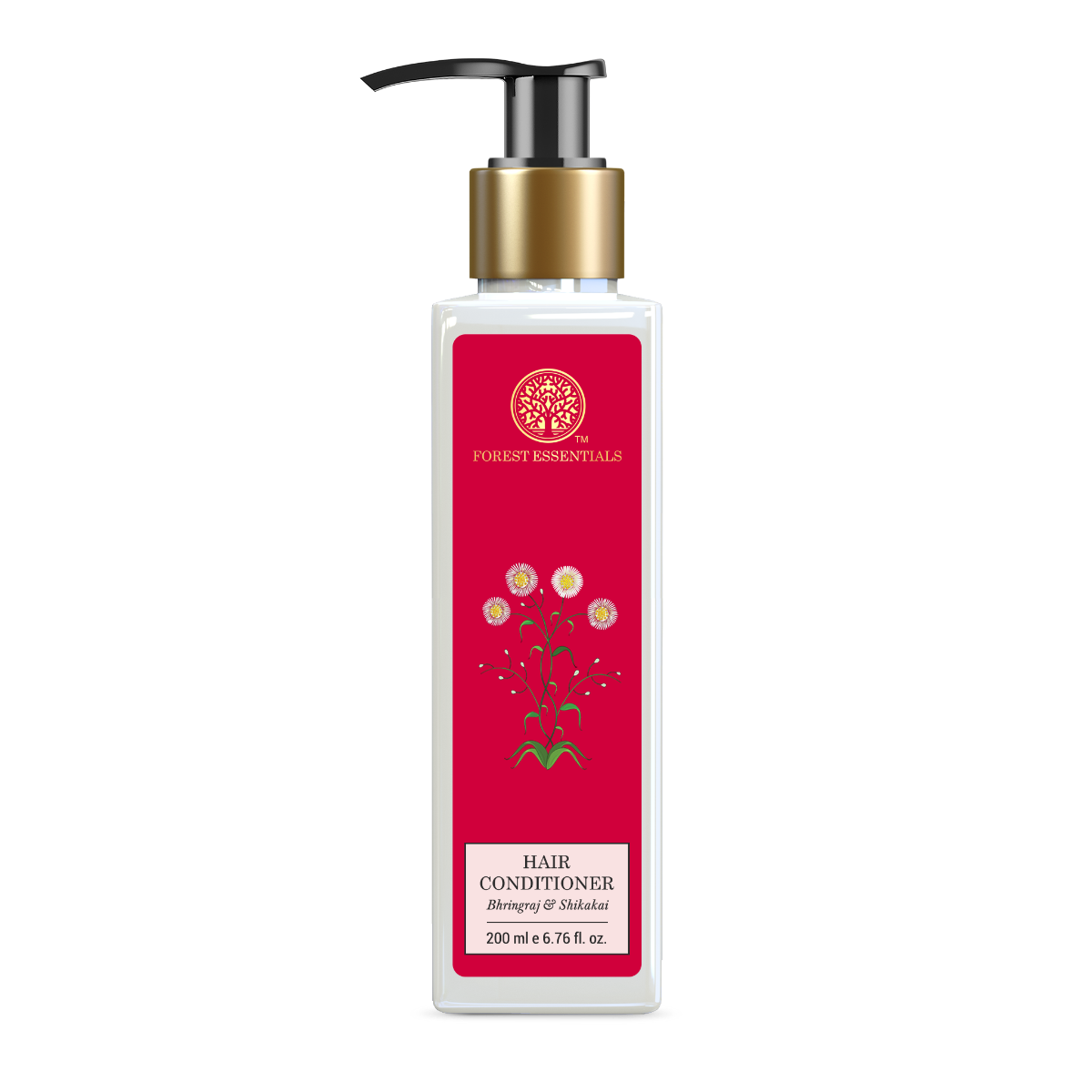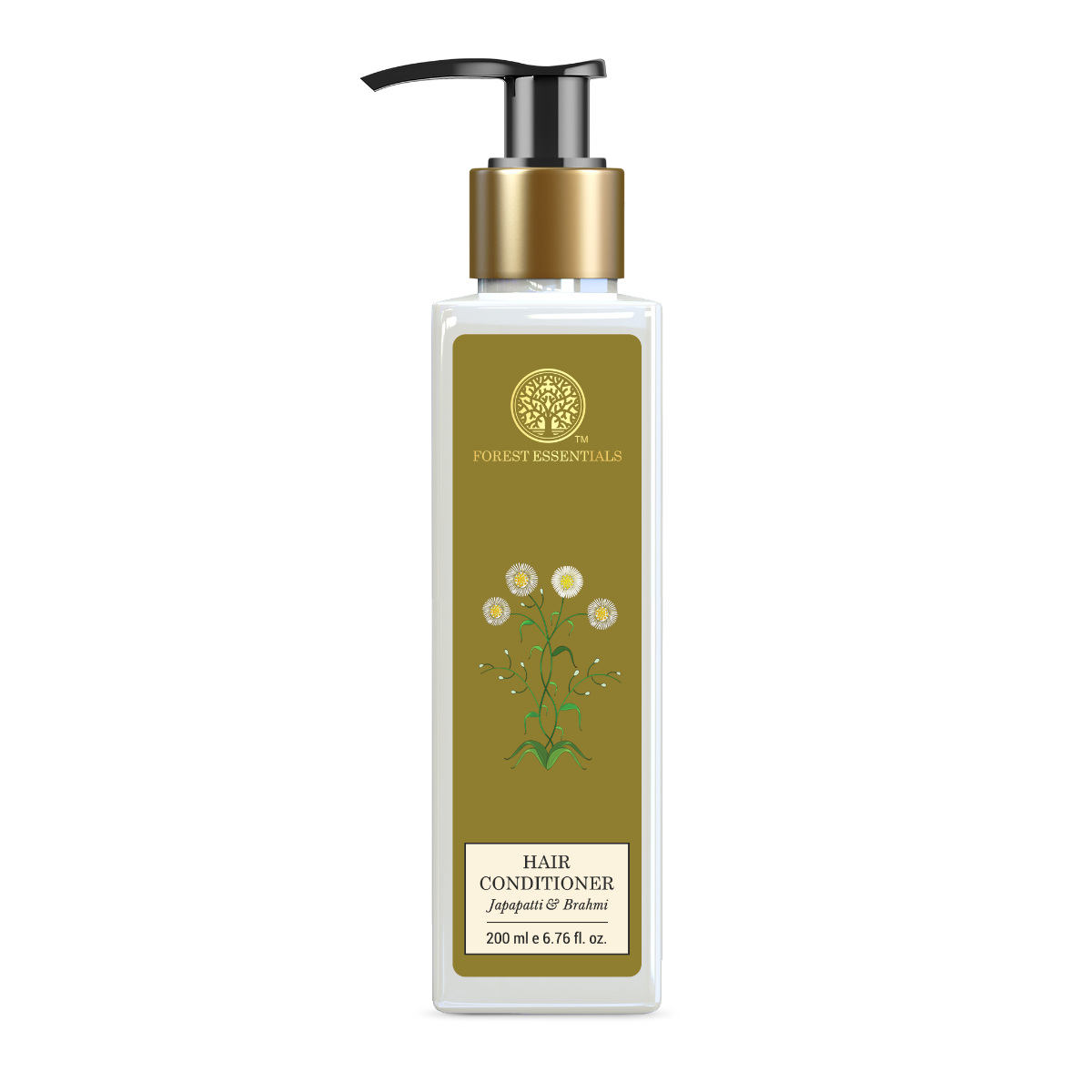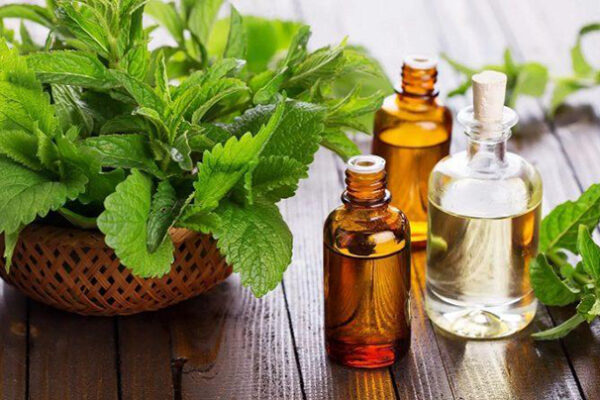Introduction
In Ayurveda, the usage of hair oils to maintain healthy hair is a sign of a balanced Ayurvedic Dosha – when hair feels strong, glossy and shiny instead of being dry, brittle and damaged. Our hair has three distinct layers – the hair shaft (the part that sticks out from the skin’s surface), the root (the bulbous end at the base of the hair), and the follicle (a sac-like crater in the skin from which the hair grows). Massaging your hair with high quality, herb-infused ayurvedic hair oils at once a week results in the improved quality of hair with a thicker texture and increased volume. (1)

Hair thinning, hair fall, hair loss, split ends, dry hair – are these some of your hair concerns?

If yes, then if oiling your hair (as cumbersome and old-schooled as it may seem) and incorporating it into your beauty regimen once or twice a week can result in lustrous, long, and healthy hair.
Why is hair oiling a must and what are its benefits?
Hair oiling, the practice of pouring oil and massaging it into the scalp, is a must to increase the moisture, lustre and shine of the hair. Specific techniques along with different hair oils (and their preparations) — recommended in Ayurvedic medicine — can get you the desired results and benefits. Some of the benefits of hair oiling are:

- Reduction in falling hair and encouraging hair growth.
- Ayurvedic hair oil protect the hair from outer radicals and surfactants by filling the gap between the cells of the cuticle.
- They also help strengthen the hair shaft in case of frizzy and dry hair. (2)
Five Hair Growth Oils for healthy, rejuvenated hair and scalp
In this guide to hair oiling, these five hair oils will help identify the oil suited best to your hair type. We have listed and also recommend 100% natural and ayurvedic oil for hair that are free from parabens and chemicals which could be harsh on your scalp and hair – not providing it with necessary nutrients and nourishment. These hair oils are apt for hair growth while also restoring its thickness and pumping the volume.
Insider’s Tip: Following the Ayurvedic ritual of Shiro Abhyanga (head oiling using herbal oils), warm small quantities of these oils using the double boiler technique: immerse the container of oil in a copper bowl of hot water such that the oil gets heated indirectly (Think of it as tempering chocolate!). This method of heating ensures that the ingredients of the oil remain intact to then maintain the efficacy of the massage which is to follow.
#1: The magic of Coconut
Considered to be the “Fruit of aspiration”, Coconut Oil has a sweet taste that makes it nourishing and nurturing for the mind and body. It helps balance excess Pitta (heat element) by giving it a cooling effect and also balances Vata (air element) by providing extra nourishment and moisture. A rich emollient containing essential fatty acids and vitamins, it has the power to penetrate into the deepest layers of your hair follicle by removing excess sebum build-up – thereby speeding hair growth. (3)

- We recommend: The Forest Essentials Organic Cold Pressed Virgin Coconut Oil is one of the purest forms of coconut oil that is extracted from strictly graded, high-quality coconuts through an old-fashioned cold press method. In this method, the oil is obtained from the first press of the ingredient without the external application of heat – to retain the oil’s nutrients and superior quality.
- How to use: Apply warmed Virgin Coconut Oil to the scalp and gently massage the hair in circular motions for 10 minutes from root to tip. Leave it on for a minimum of 30 minutes. After that, wash it off with a mild hair cleanser.
- Benefits: Regular usage of Coconut Oil helps tone, relax and nourish the hair and scalp. A rich emollient, easily absorbed, it adds lustre to the hair.

#2: Nutritious Almonds
The nutrients present in Almond Oil are intensely nourishing and penetrate into the deepest layers of the skin. Containing lipoproteins, Omega 3 fatty acids and Vitamin E, Almond Oil helps promote hair growth by softening and strengthening hair follicles – thereby, controlling hair fall and adding lustre to damaged hair. (4)
- We recommend: The Forest Essentials Organic Cold Pressed Virgin Almond Oil contains cold-pressed oils extracted from 100% natural Sweet Almonds using an old-fashioned cold-press method that has a rich texture and is deeply nourishing for the hair and scalp.
- How to use: Gently apply the Virgin Almond Oil onto the scalp and massage in circular motions from root to tip for 10 minutes. Leave it on for a minimum of 30 minutes. After that, wash it off with a mild hair cleanser.
- Benefits: Regular usage of Almond Oil helps deeply nourish the scalp and condition the hair. It also helps protect the hair and repair it from damage.

#3: The miracle of Moringa
A widely used ingredient in Indian food, the Drumstick plant or Moringa is known for its miraculously healing and nourishing properties. The oil from the Moringa seed has amazing antioxidant properties and is used to condition the scalp and strengthen hair follicles while also rejuvenating the hair with essential vitamins and minerals. (5)
- We recommend: The Forest Essentials Organic Cold Pressed Virgin Moringa Oil is extracted from the juicy white kernels of the purest, mature black seeds of Moringa using the traditional cold-pressed technique which ensures that the potent nutrients in the oil remain intact.
- How to use: Gently apply the Virgin Moringa Oil onto the scalp and massage in circular motions from root to tip for 10 minutes. Leave it on for 30 minutes. After that, wash it off with a mild hair cleanser.
- Benefits: Regular usage of Moringa Oil helps hair growth and reduces split ends while deeply nourishing damaged or chemically-treated hair. Moringa Oil also helps retain the hair’s natural colour and strengthens the hair follicles.

#4: Bhringraj, Food for hair
In Ayurveda, oils derived from herbs are given special significance and are therefore called herbal oils. One such herb which always comes out on the winning side is Bhringraj. Also known as the ‘King of Herbs’, Bhringraj or False Daisy is a miraculous herb that is derived from the Bhringraj Tree and is widely recognized for its hair growth properties. Enriched with the goodness of Nature, Bhringraj has the ability to support strong, lustrous and healthy locks while also providing your hair with a healthy dose of nutrition. (6)
- We recommend: The Forest Essentials Ayurvedic Herb Enriched Bhringraj Head Massage Oil as the ideal nourishing treatment to arrest hair loss and promote healthy hair growth. Made using cold-pressed Coconut Oil, Cow’s Ghee and other herbal extracts, the oil helps to deeply nourish the hair and scalp.
- How to use: Heat the oil in a copper bowl using the double-boiler technique and massage directly onto the hair and scalp. Leave the hair to rest, preferably wrapped in a hot towel, for about 30 minutes and then gently rinse off using a mild hair cleanser.
- Benefits: The regular usage of Bhringraj Oil helps strengthen hair follicles and combats hair fall. Due to the high density of the oil, it has the power to penetrate into the deepest layers of the scalp and treat excessive dryness. A wonderful dandruff treatment, it also provides relief from dandruff. Regular massage of this oil also improves blood circulation, strengthen hair follicles and encourages hair growth.

#5: Japapatti to the rescue
One of the most renowned plants to promote hair growth in Ayurveda, Japapatti or Hibiscus Flower is known to deeply condition hair by strengthening hair follicles as it is naturally rich in Vitamin C – the deficiency of which is known to cause hair loss. Japapatti acts as an astringent for the hair and reduces excess oil secretion by the glands whilst maintaining the hair’s pH balance. (7)
- We recommend: The Forest Essentials Ayurvedic Herb Enriched Japapatti Head Massage Oil uses the finest quality of herbs to promote healthy hair growth while improving its overall texture and volume. Made using an ancient recipe — documented in the Vedas — using Black Sesame and Coconut Oil with other potent herbal extracts, helps to keep hair lush and nourished while also combatting hair fall.
- How to use: Using the double-boiler technique, massage directly onto the hair and scalp. Leave the hair to rest, preferably wrapped in a hot towel, for about 30 minutes and then gently rinse off using a mild, ayurvedic shampoo.
- Benefits: The frequent usage of Japapatti Oil helps strengthen hair roots, condition hair lengths and stimulate hair regrowth.

Forest Essentials Ayurvedic Herb Enriched Head Massage Oil Japapatti
Steps to oil hair for hair growth
Now that in this blog you’ve gone through the five essential oils to promote hair growth, let’s go through the following steps needed to oil your hair well:
- Take a brush with soft bristles and start brushing your hair while untangling hair knots along the way. This will ensure an even application of the hair oil.
- Part your hair in the middle and divide it into different sections to ease and even out the application.
- Using the double-boiler method, warm the oil, take it into your palms and gently massage all over your scalp.
- Apply the oil on the length of your hair as well. You may comb your hair after for even application.
- Leave your hair to absorb for a minimum of 30 minutes, preferably wrapped in a hot towel, after application.
- Wash it off with a gentle hair cleanser.

FAQs
Which oil is best for fast hair growth?
The aforementioned hair oils — Coconut, Almond, Moringa, Bhringraj and Japapatti — are the best for hair growth as the cold-pressed extracts of herbs and dry fruits ensure that the oils are at their most potent form and provide maximum efficacy.
Do hair growth oils actually work?
Yes, hair growth oils do work when used regularly and show desired results within two to three weeks.
Can hair oil regrow hair?
While there is no magic remedy to quickly regrow lost hair, incorporating Ayurvedic oils into your hair care regimen can provide benefits, which can lead to improved hair growth.
Referenced Sources
- https://www.webmd.com/skin-problems-and-treatments/picture-of-the-hair
- https://www.ncbi.nlm.nih.gov/pmc/articles/PMC4387693/
- https://pubmed.ncbi.nlm.nih.gov/12715094/
- https://pubmed.ncbi.nlm.nih.gov/20129403/
- https://www.ncbi.nlm.nih.gov/pmc/articles/PMC5187941/
- https://www.ncbi.nlm.nih.gov/pmc/articles/PMC4897414/





